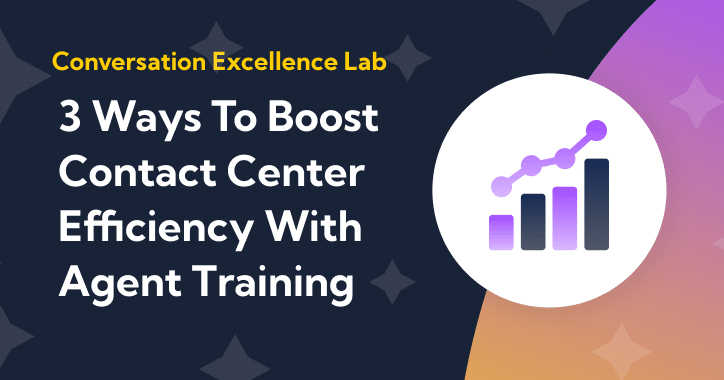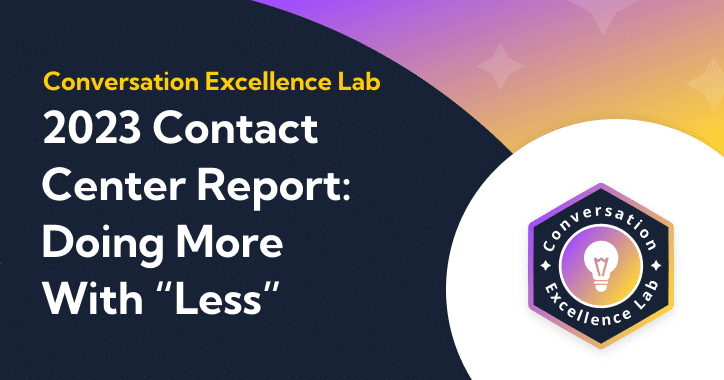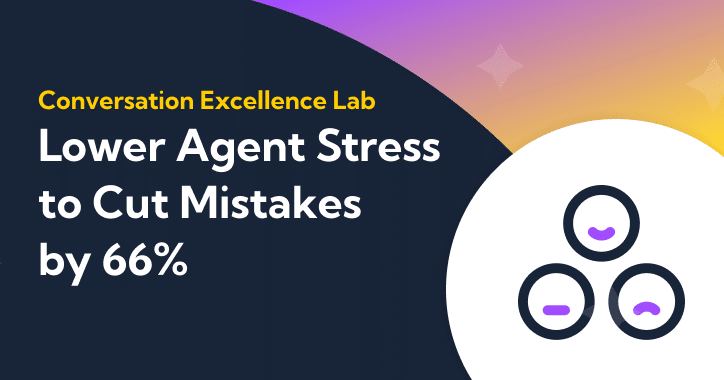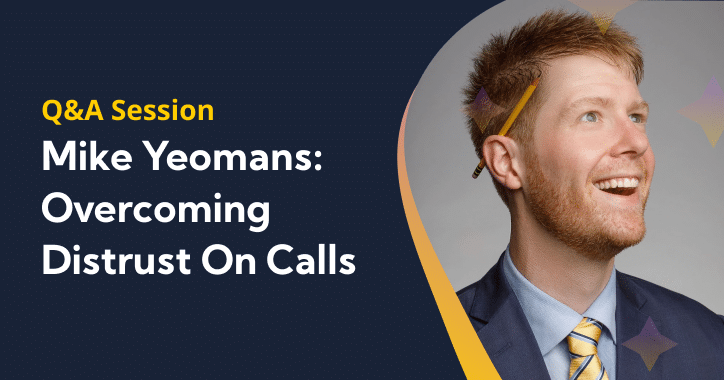Coaching agents is one of the most important roles of a contact center manager or supervisor. Effective coaching helps agents improve their skills on calls, implement new policies, and prevent future mistakes.
When managers coach, it’s an investment in the quality of conversations, and an investment in sales and the customer experience.
Subscribe to future Conversation Excellence Lab reports below:
There is little insight into the effectiveness of current coaching methods across the roughly 40,000 contact centers in the U.S. How much time do managers spend coaching agents? How many times do managers typically coach an agent on a particular skill before the agent consistently implements it?
We sought out answers to these questions by surveying 515 contact center managers in the U.S.
To our knowledge, this is the largest study on contact center coaching to this date. Our analysis shows:
- Managers spend 5x more time prepping than coaching
- The first coaching session is almost never effective
- Agents need 4 coaching sessions before implementing a new skill
- Managers commit 10-14 hours to coaching before an agent implements a new skill
- Fully remote centers coach more; with slightly better outcomes
We explore each of these findings in the following pages.

Send the Report to Your Inbox
Dive deeper into our findings or forward them to your team. We won’t bug you.

On average, managers have 6 coaching sessions per agent every month. The majority of this time is just spent on preparing for coaching sessions.
We asked managers to report the total time they spend preparing for each coaching session, as well as how long the sessions themselves take. On average, contact center managers lead 6 coaching sessions per agent every month, with an average length of 34 minutes.

However, managers are spending more time preparing for coaching. On average, managers reported spending 2-3 hours preparing for each coaching session combined with the 34 minutes of actual coaching.
This shows the time commitment managers make to coaching isn’t limited to sessions themselves. Some may suggest this time is necessary for more effective coaching; as we explore in Section 3, this is not the case.
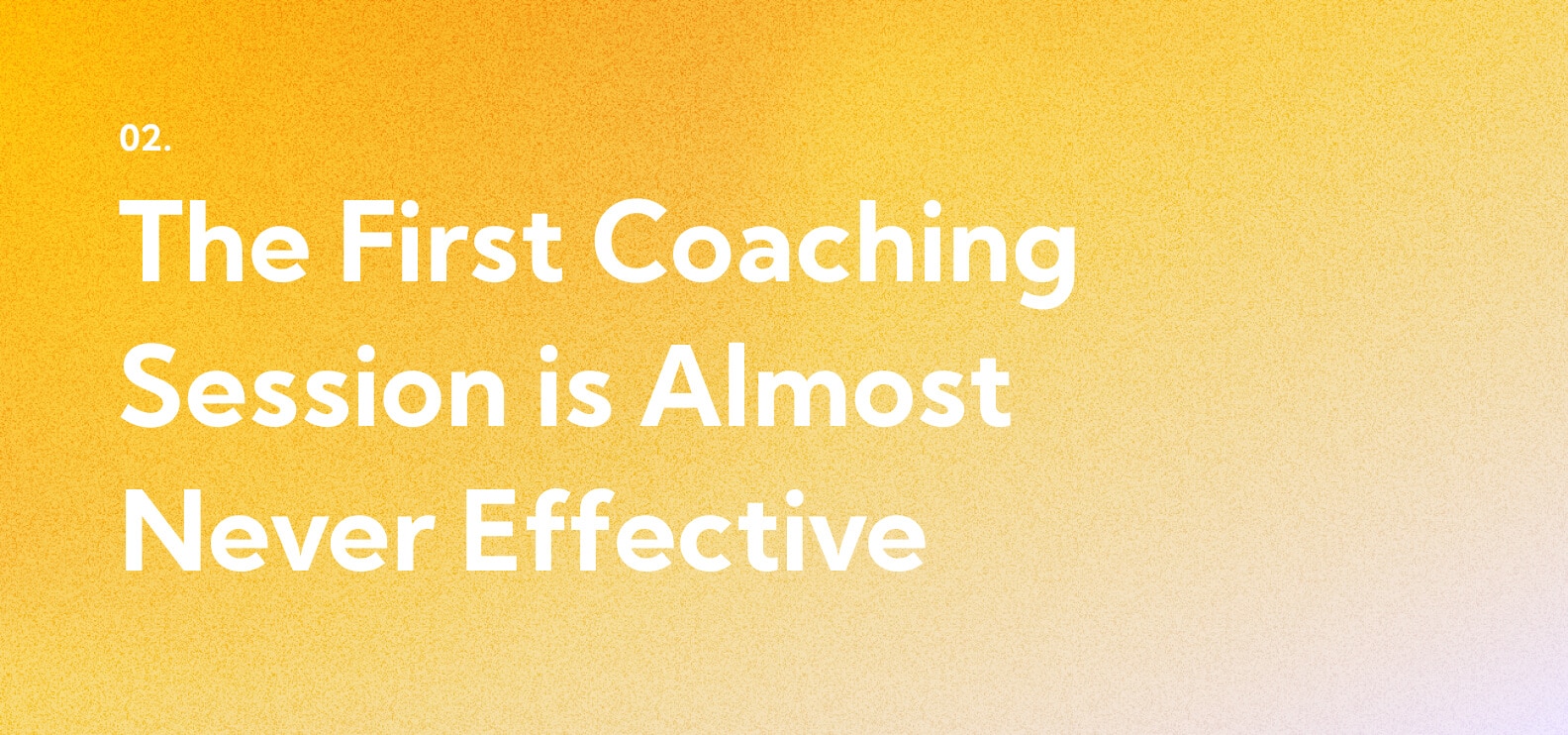
One coaching session is not enough for most agents to implement a skill on calls.
The coaching hours managers invest every month should translate into effective results, i.e., agents implementing a new skill after one coaching session. Our analysis suggests that just one coaching session is almost always insufficient to change agent behavior.

92% of surveyed managers reported they coach an agent 2 or more times before they consistently implement a skill on calls. This suggests current coaching methods are ineffective for performance improvement.
It could be argued that additional coaching sessions (re-coaching) are necessary to evaluate if a skill was learned, or coaching sessions covering the same topic are necessary to refresh tenured agents while teaching new agents.
However, this still does little to reduce the overall time managers are investing into coaching while maintaining positive results. An effective coaching solution would eliminate the need for refresher coaching sessions; the skill would be implemented after one session.
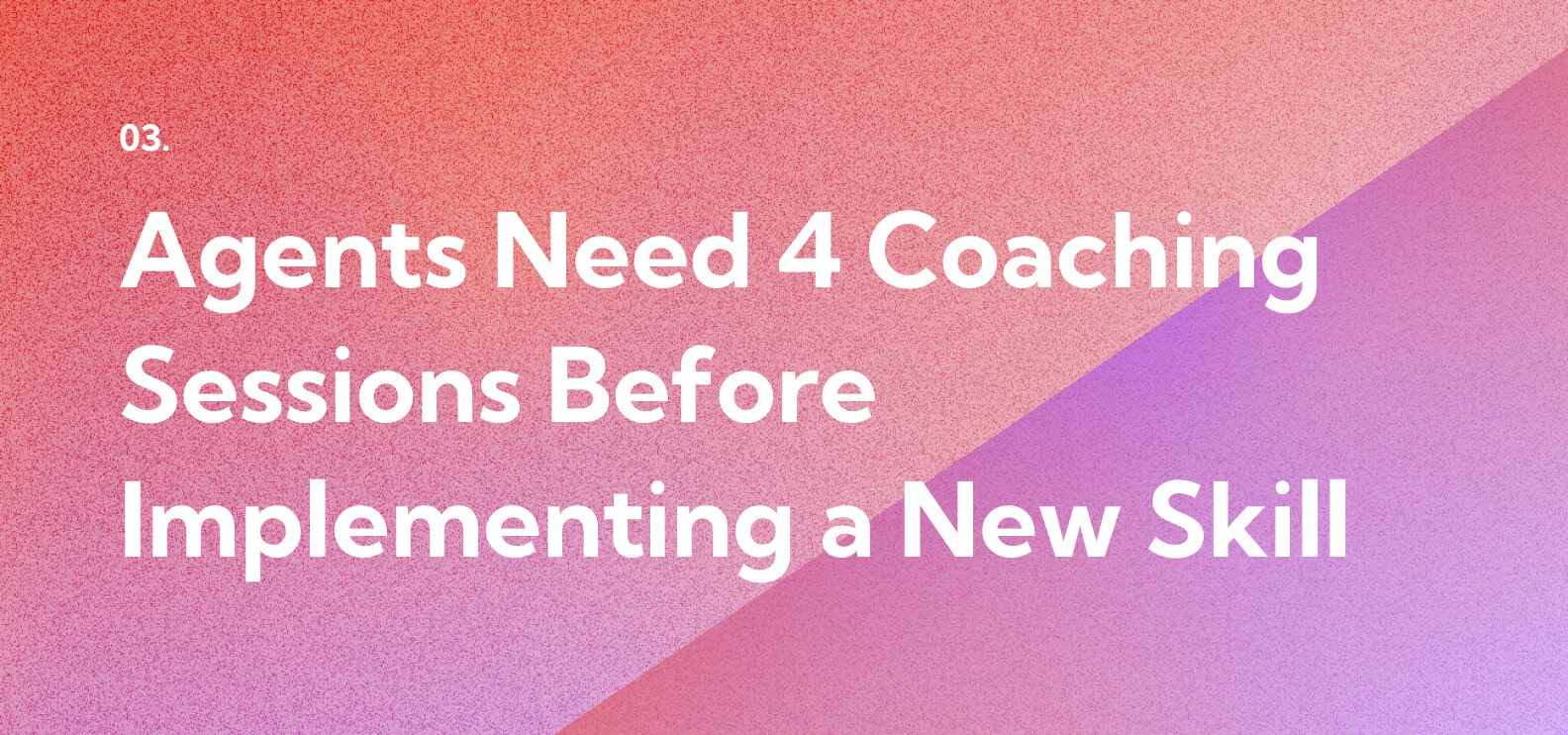
Managers are spending 75% of their time not coaching, but re-coaching.
While the vast majority (92%) of managers reported re-coaching on a skill at least once, the average number of coaching sessions needed for an agent to implement a skill is even higher.

On average, agents need at least 4 coaching sessions before implementing a skill — well beyond the one-and-done ideal. A quarter of managers even reported needing 4-7 sessions.
If agents need three re-coaching sessions before implementing a new skill, then managers are spending 75% of their coaching time re-coaching. This expands on our earlier assumption that the current approach to coaching is not effective.
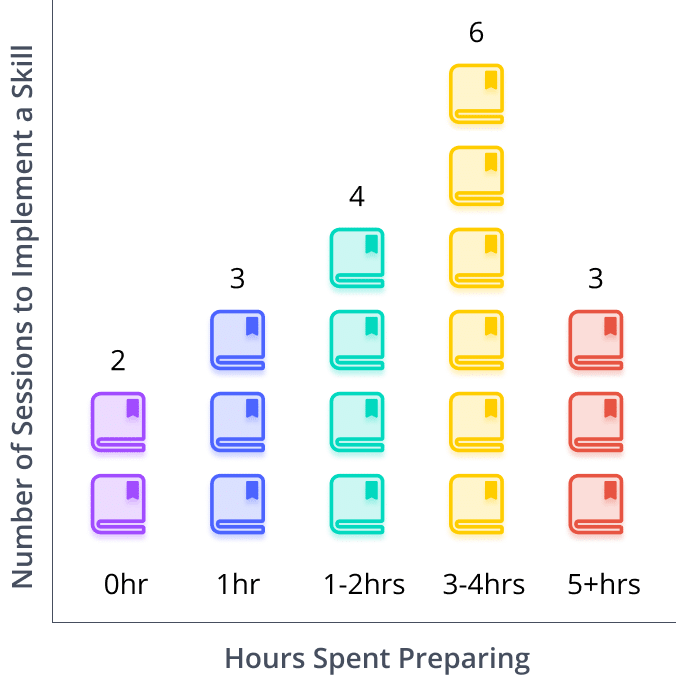
Number of Coaching Sessions to Implement a Skill by Hours Spent Preparing for the Session
Are Managers Not Prepared Enough for an Effective Session?
As we mentioned above, some may argue that better preparation would make for more effective coaching sessions. Surprisingly, our data shows the exact opposite. Managers who reported spending more time preparing for coaching also needed more sessions to train an agent on a skill.
There is room to question whether different coaching methods (1-on-1, team coaching, etc.) impacts the need for re-coaching sessions. The majority of our respondents identified 1-on-1 and team coaching as their preferred methods of coaching.
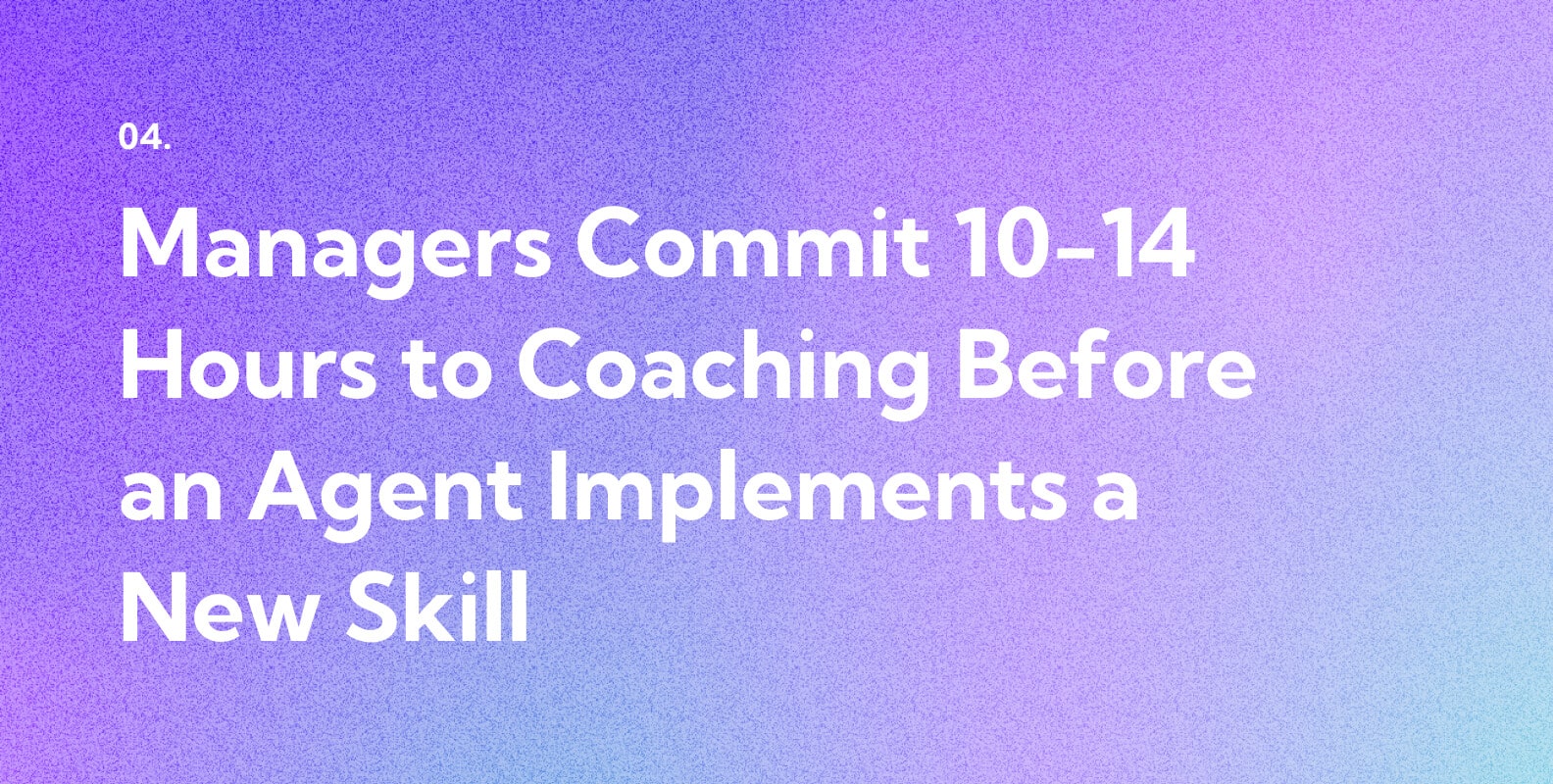
Before an agent consistently implements a new skill on calls, managers invest 10-14 hours in coaching and re-coaching.
As we outlined in Section 1, the average coaching session is 34 minutes. Because it takes, on average, 4 sessions to implement a new skill (Section 3), we can assume that agents need roughly 2 hours of coaching before they will consistently implement a skill. After adding an additional 2-3 hours of preparation time for each session (Section 1), we can reasonably assume managers are investing a total of 10-14 hours to teach an agent a new skill.
In other words, whether coaching time is measured in total hours or total sessions, managers can expect to invest a significant amount of time just to reinforce one skill.
A better approach could reinforce skills without requiring such a high time commitment. Some may advocate for managers to spend more time utilizing “live” coaching methods (walking the floors, whisper mode, or encouraging peer coaching) rather than utilizing time-intensive coaching methods (1-1 coaching sessions or team coaching sessions).
Although live coaching methods may reduce the initial prep time, they require downtime to wait for coachable moments. Overall, the time commitment for traditional live coaching methods may not be significantly lower.
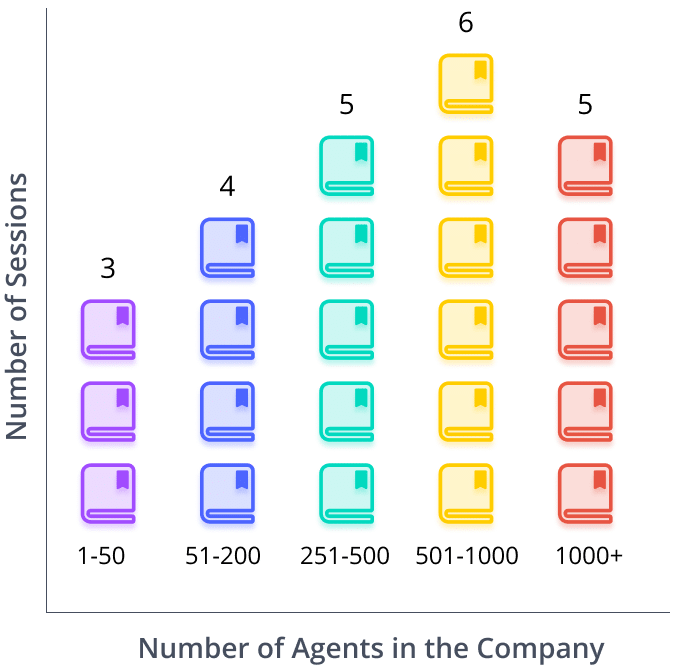
Number of Coaching Sessions to Implement a Skill by Contact Center Size
More Seats = Less Effective Coaching
The number of coaching sessions needed for agents to implement a skill increases as the number of agents in an organization goes up. Where centers with up to 250 agents reported needing roughly 4 sessions to implement a skill, centers with 501-1000 reported needing almost 6 sessions. Interestingly, coaching effectiveness seemed to improve again for organizations with more than 1000 agents, which may speak to the quality of their coaching programs.
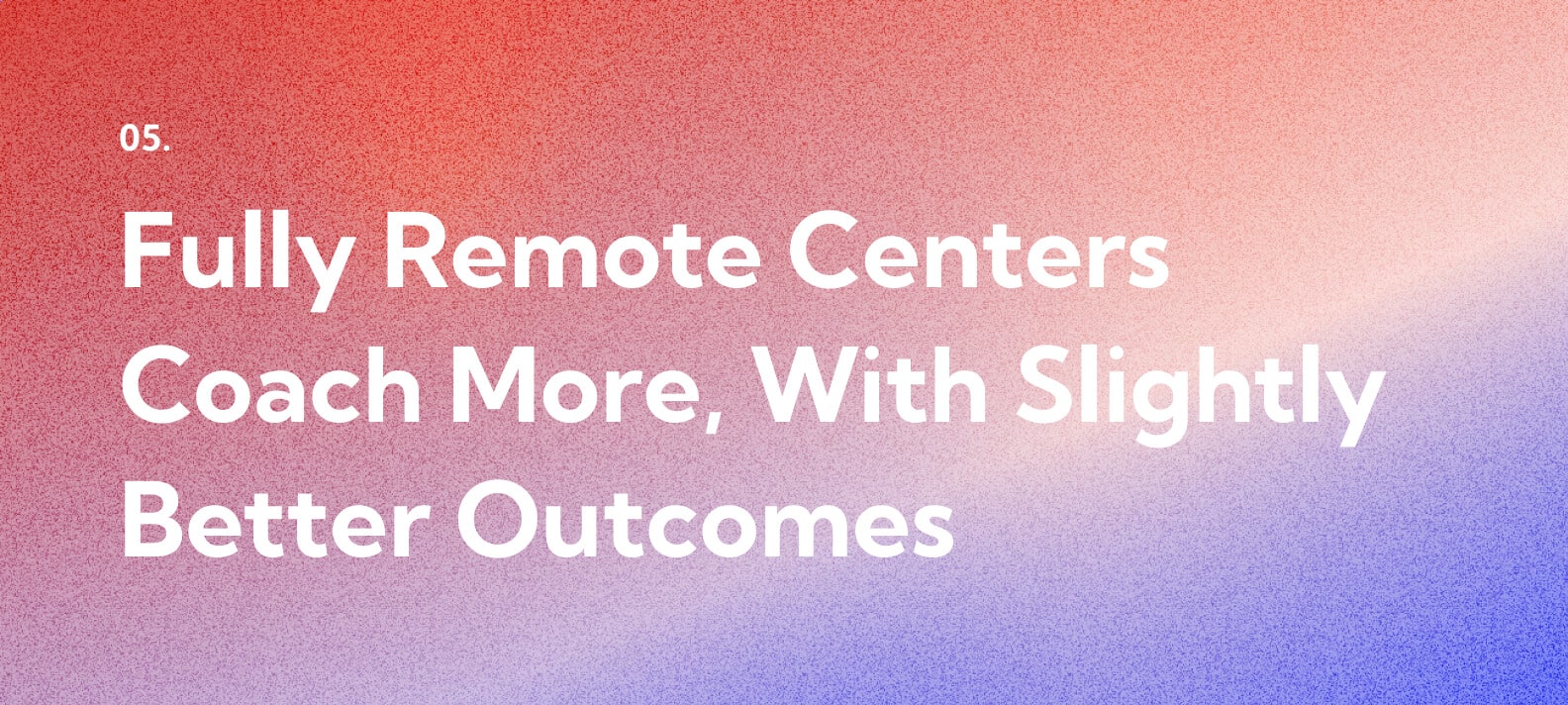
At this point, hybrid and remote work have become the new standard for contact centers. The majority of respondents report using one of the two models (49% hybrid, 16% remote). Which approach is the right one has been hotly debated, and we’re glad to shed some light on the situation.
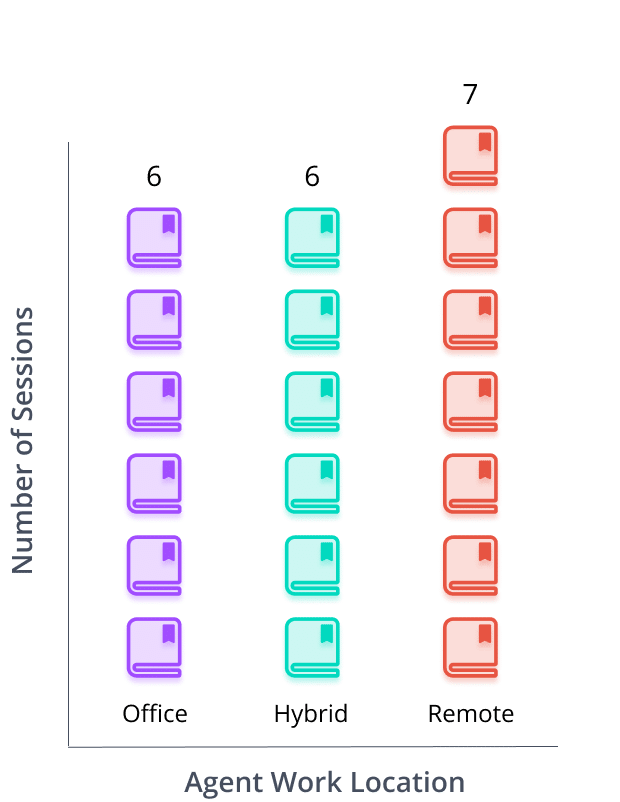
Number of Coaching Sessions to Implement a Skill by Work Location
Managers who oversee largely hybrid or in-person agents reported an average of 6 coaching sessions per month. Managers who oversee remote agents reported an average of 7, showing that remote agents get coached more often.
Surprisingly, managers reported similar coaching effectiveness between fully remote teams and in-office teams. This indicates that, from a manager perspective, remote work has not affected coaching effectiveness.
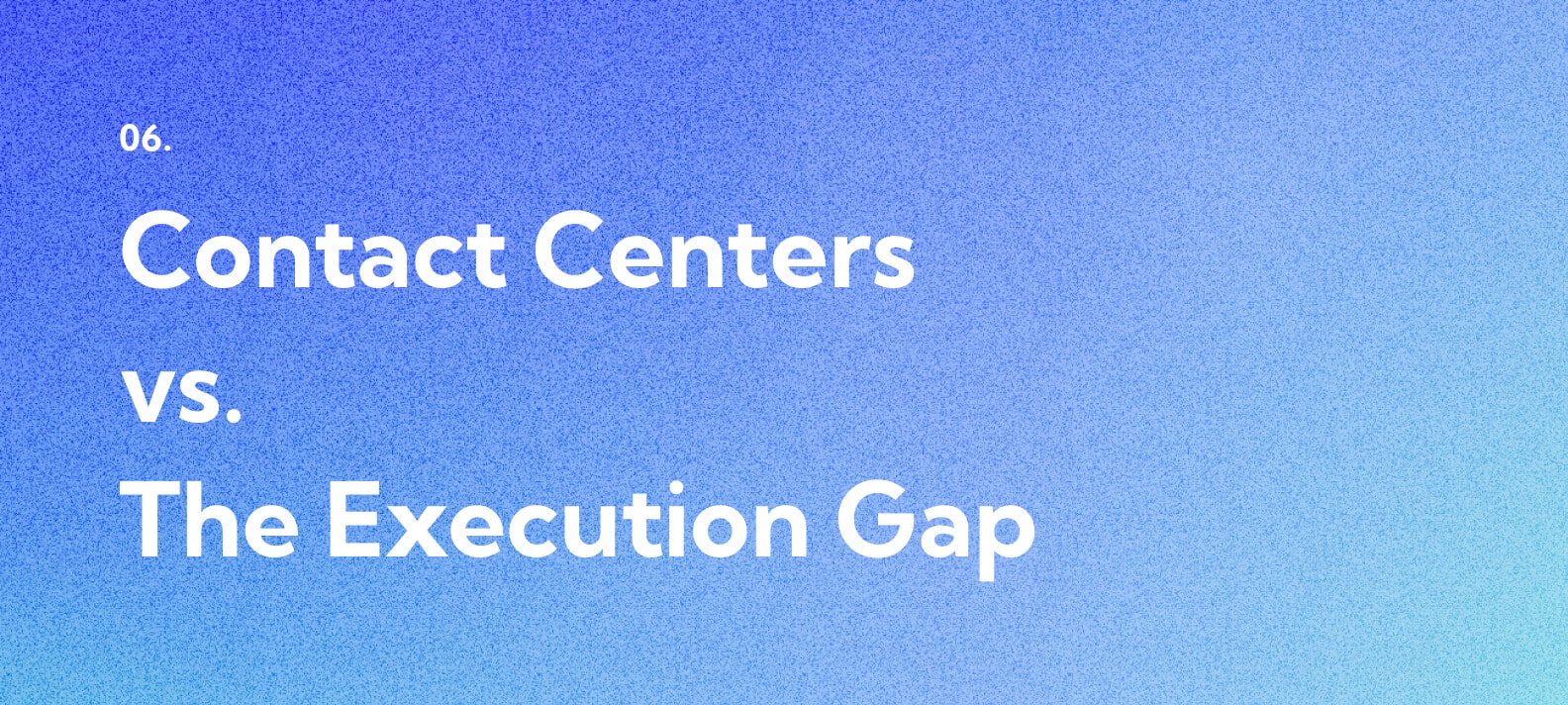
We set out to understand to what degree coaching allows contact centers to improve their conversations, because better conversations result in more sales and happier customers.
Our findings show that coaching does indeed improve conversations by helping agents implement new skills on their calls.
But We’ve Also Seen That Coaching Is Highly Ineffective
The data shows:
- Managers spend the majority of coaching time on prep.
- Agents get re-coached 3 times before implementing a new skill.
- Coaching gets even less effective with scale.
We’ve previously coined this the Execution Gap: a phenomenon observed when organizations collect all the insights about what’s going wrong on their calls but have no effective tools for acting on these insights at scale.
This is the first time we’ve been able to demonstrate the Execution Gap based on empirical data.
Cite this report
Balto. (2021, October 22). We Surveyed 500 Managers About Call Center Coaching. Conclusion: It’s Not Working – Balto Ai. RSS. Retrieved from https://www.balto.ai/research/call-center-coaching-manager-survey/


